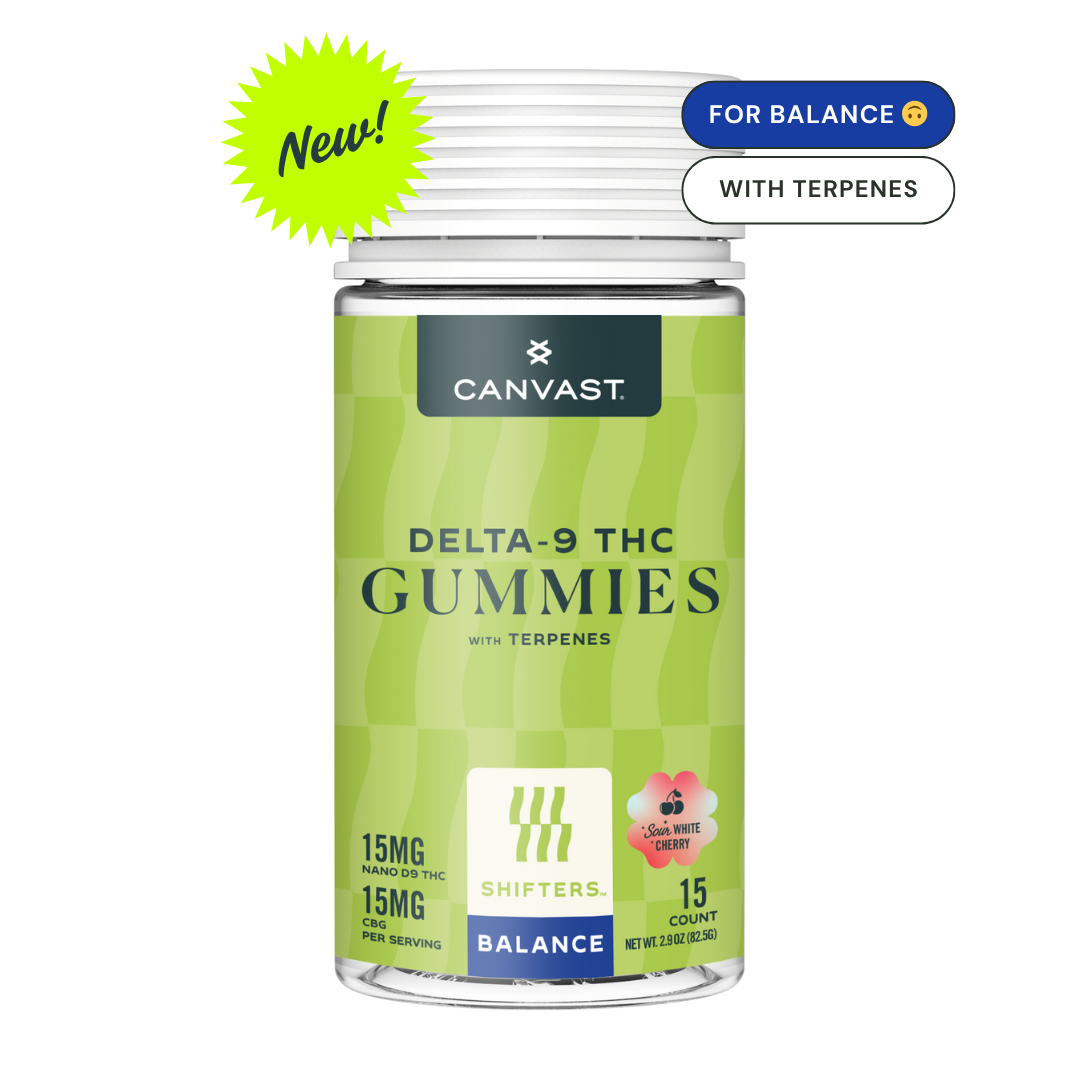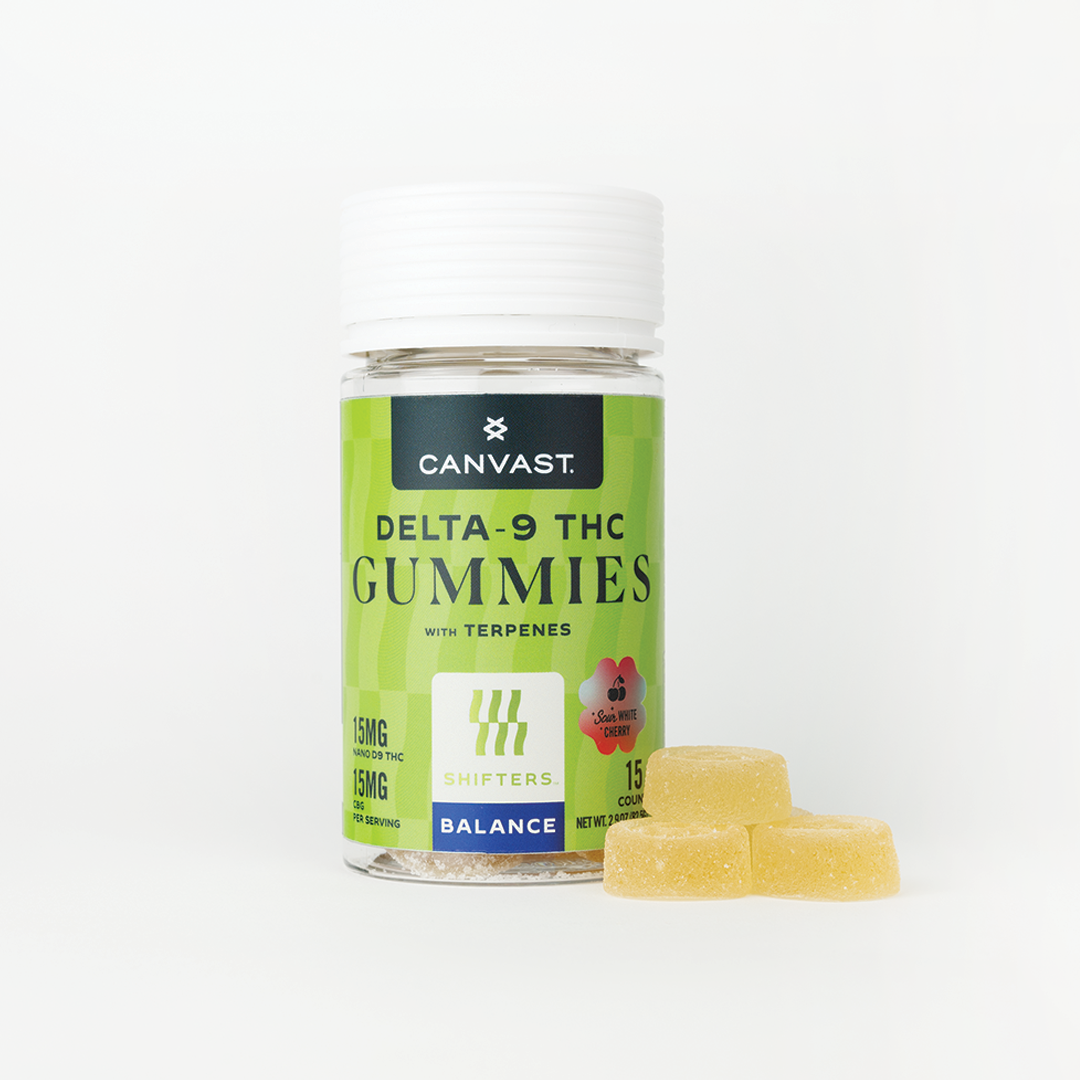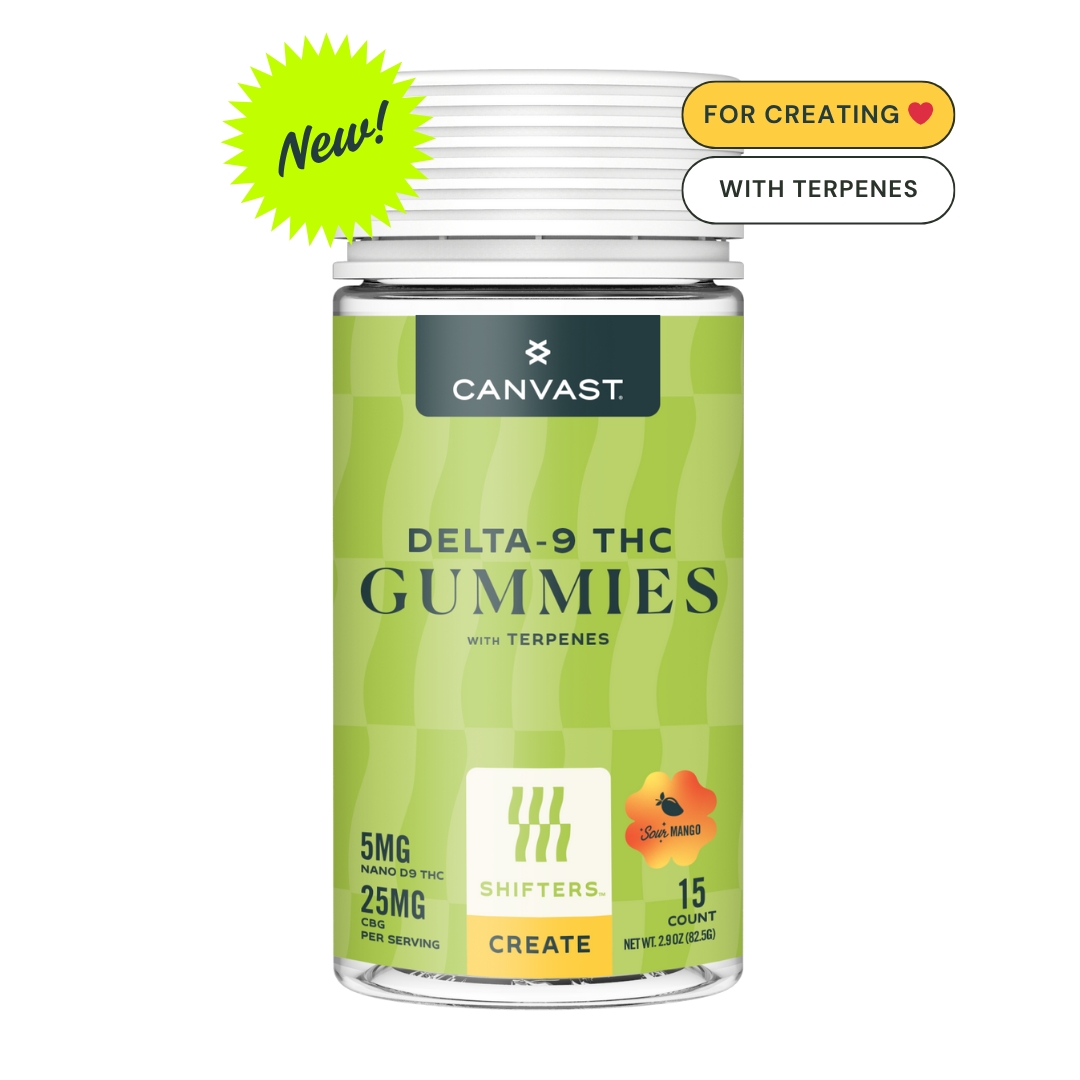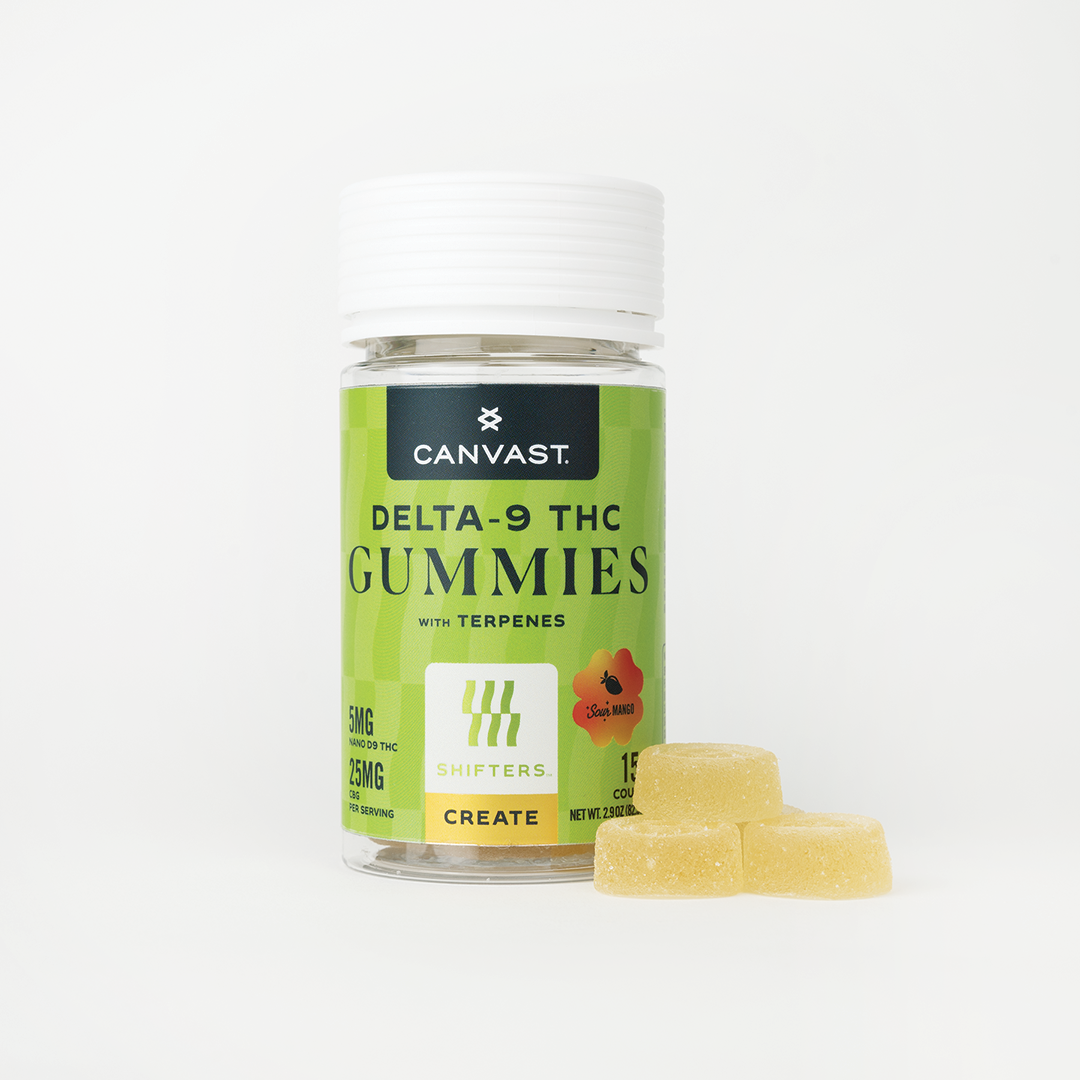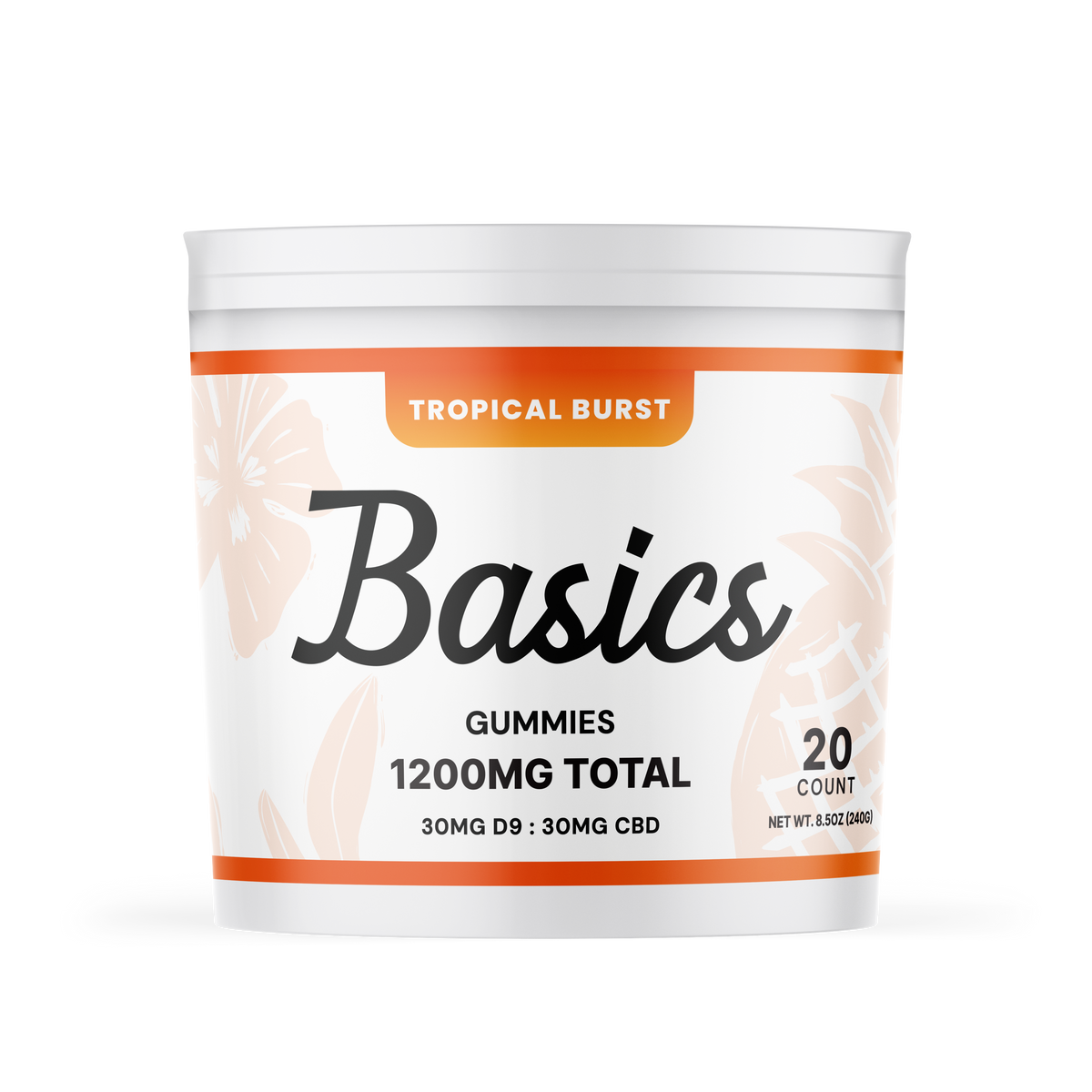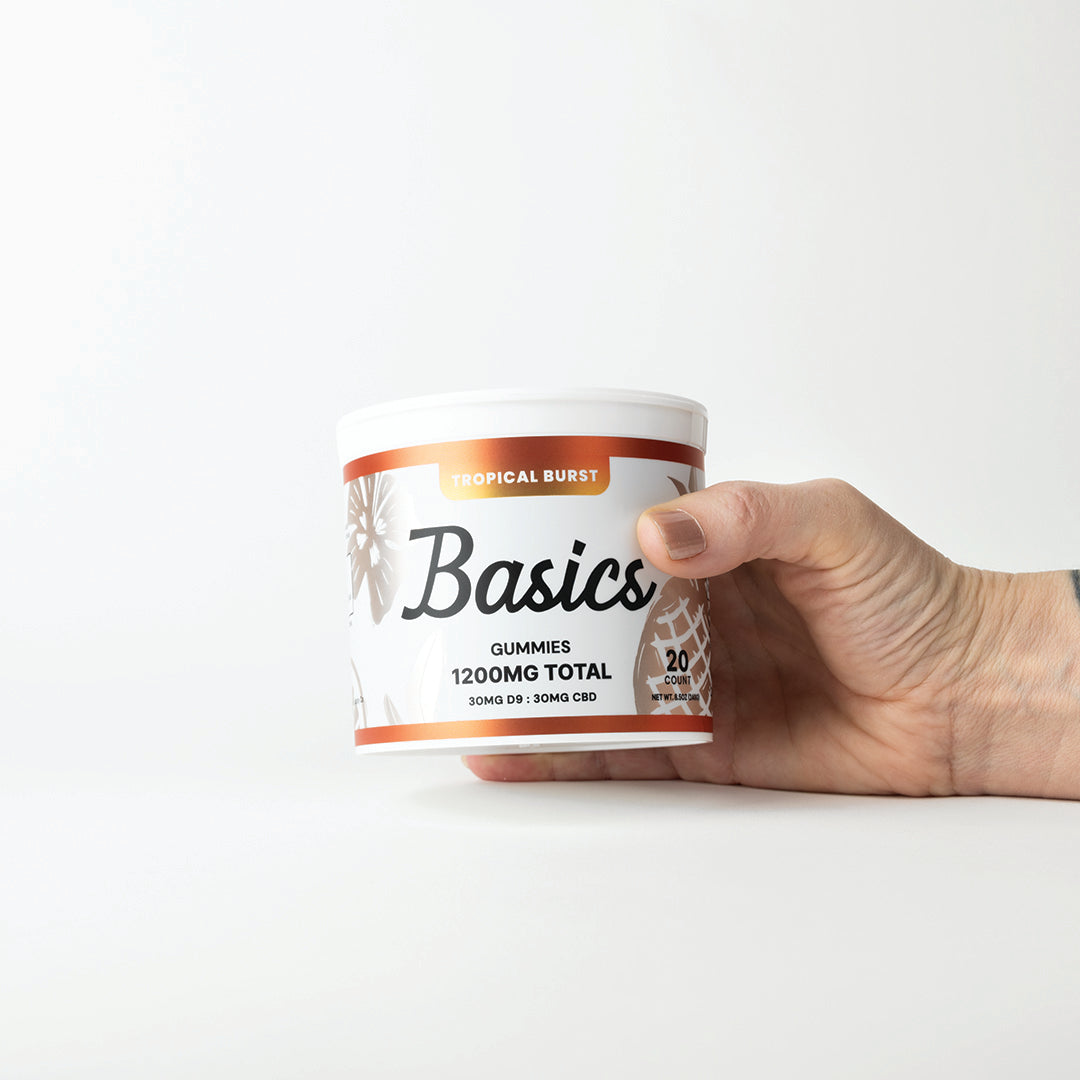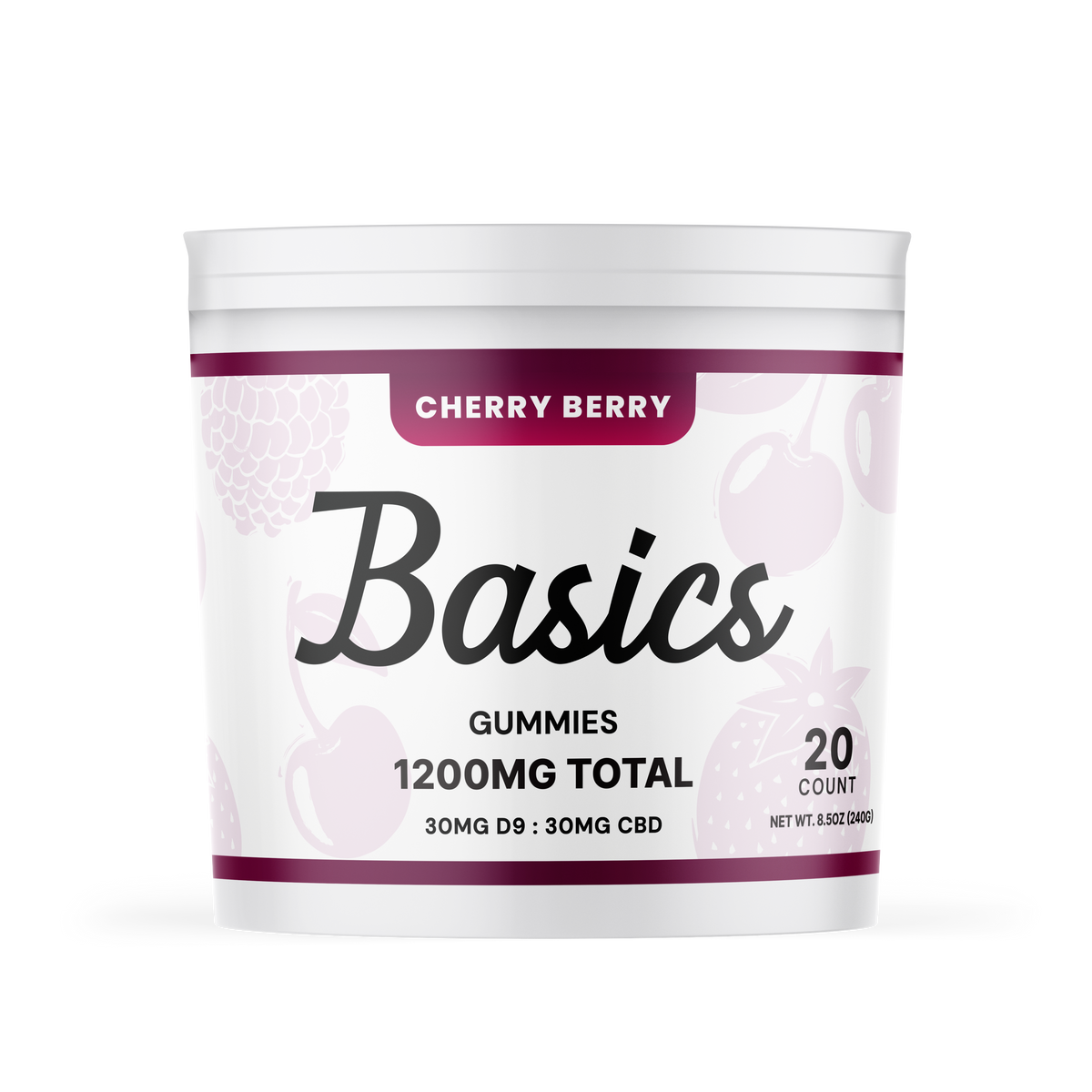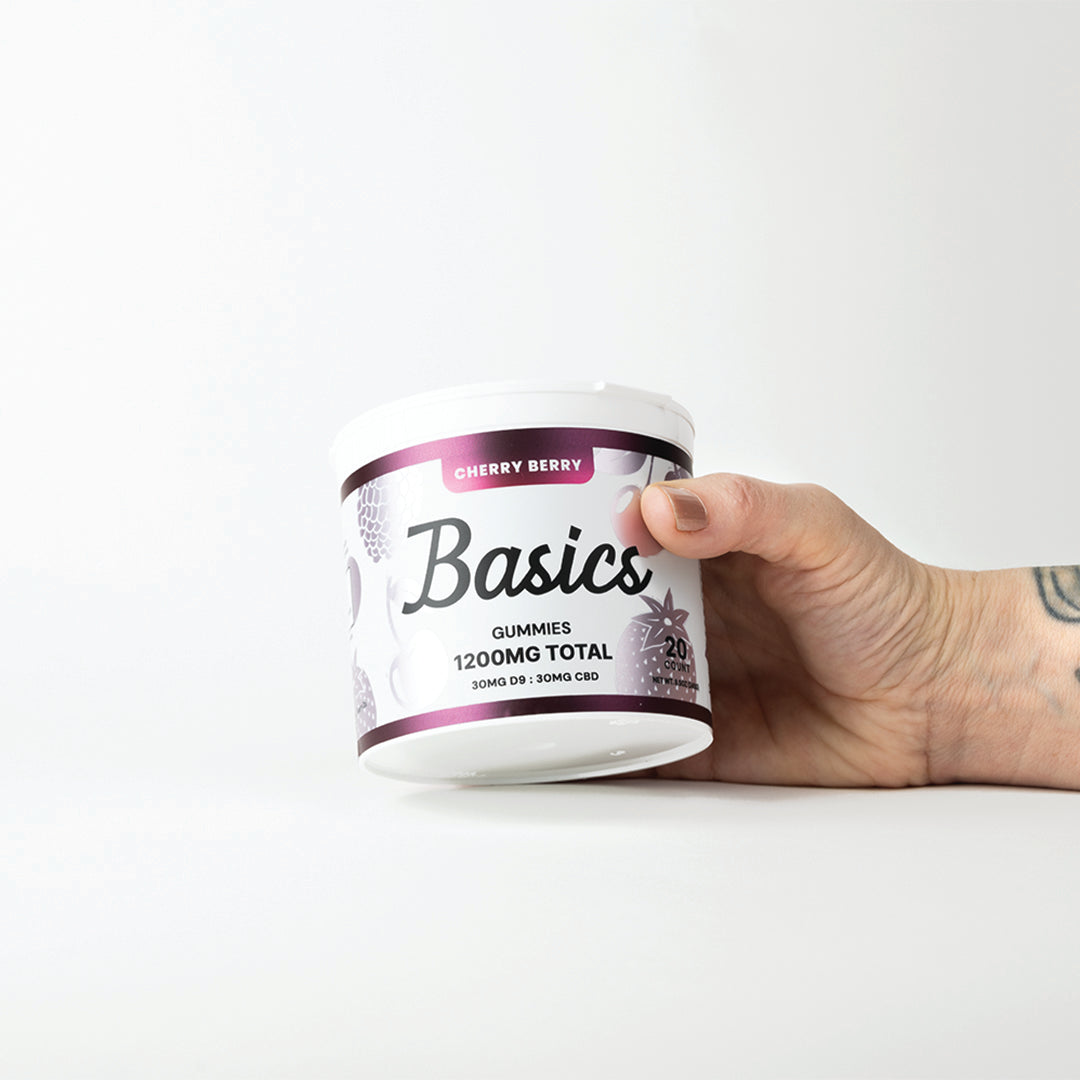While CBD oil is generally safe, it is important to be aware of the potential risks involved before you start using it. This includes the possibility of liver damage. In this article, we'll take a look at the evidence surrounding CBD and liver damage to see if you should be concerned.
What is CBD?
CBD is short for Cannabidiol. It is one of the many compounds found in the cannabis plant. Unlike its more famous cousin, THC, CBD does not produce any psychoactive effects. This means that it won't make you feel high or intoxicated. Canvast's Drifter CBN + L-Theanine Gummies are completely THC-free, making them the perfect way to relax stress within the body without any psychoactive effects.
CBD is believed to have a wide range of potential health benefits. These include reducing pain, inflammation, and anxiety. It is also thought to have neuroprotective properties and may be beneficial for treating some neurological disorders.
However, there is still much research to be done on CBD and its potential effects. As such, it is not yet approved by the FDA for any medical conditions.
CBD and Liver Damage

There is some evidence to suggest that CBD could potentially cause liver damage. In one study, rats were given high doses of CBD for seven days. This resulted in increased levels of enzymes that are associated with liver damage.
In another study, mice were given a single dose of CBD (80 mg/kg) or a placebo. After 24 hours, the mice that had received CBD had significantly higher levels of enzymes associated with liver damage.
However, it's important to keep in mind that these studies were done on animals. There is no evidence to suggest that CBD has the same effect on humans. One human study found that CBD reduced liver damage in people with non-alcoholic fatty liver disease.
Ultimately, an extreme amount, by extreme, we mean a very large amount, of anything can be bad for you. So we advise against consuming absurdly large amounts of CBD, or any other substance for that matter.
As always, it is best to speak with your doctor before starting any new supplement, especially if you have a medical condition or are taking other medications. This is especially important with CBD, as it can interact with some medications.
CBD and Drug Interactions
Another potential risk of taking CBD oil is drug interactions. CBD can interact with some medications, including those used to treat epilepsy. This interaction can lead to increased side effects or make the medication less effective.
It's also important to note that CBD oil is not regulated by the FDA. This means that there is no guarantee of its purity or potency. As such, it's important to buy CBD oil from a reputable source.
Should You Be Concerned?
Overall, the evidence suggests that CBD is generally safe and well-tolerated by most people. However, there is a potential for liver damage and drug interactions if you take it in an extreme amount. If you're considering taking CBD oil, it's important to talk to your doctor first. They can help you weigh the potential risks and benefits of taking the best CBD oils out there!
So is it safe?
Definitely!
A mouse study published in the summer of 2019 revealed a relationship between CBD and liver damage. Conservatives pushed for a human study like Validcare's, claiming that the way CBD works in mice differs from how it works in humans and that most individuals would not take the dose of CBD used in the study.
As we said, human studies are ongoing, but the one that has been conducted so far showed promising results.
The study's findings are certainly excellent news for CBD industry players who may be worried about hefty regulations if the findings had raised red flags.
This means that, as of right now, the answer to whether taking CBD is risk-free is a resounding yes - but be sure to stay up to date in case new information arises!
Types of CBD and its safety
Full-spectrum CBD oil
Full-spectrum CBD oil contains all of the compounds found in the hemp plant, including THC. This type of oil is less processed than isolate or broad-spectrum oils, so it may contain more of the plant's natural compounds. In addition, full-spectrum oils typically contain other beneficial compounds, such as terpenes and flavonoids.
The THC in full-spectrum CBD oil is what gives it the "entourage effect." This means that the other compounds in the oil work together to amplify the oil's effects.
Full-spectrum CBD oil is generally considered to be more effective than isolate or broad-spectrum CBD oil. However, it also has a higher risk of containing trace amounts of THC. While most people tolerate full-spectrum oil well, those who are drug tested or sensitive to THC may want to avoid it.
So, when it comes to safety, full-spectrum CBD oil is likely the best choice. Just be sure to buy it from a reputable source that lab tests its products for potency and purity.
Broad-spectrum CBD oil
Broad-spectrum CBD oil contains all of the compounds found in the hemp plant, except for THC. This type of oil is processed to remove most of the THC, but it may still contain trace amounts.
Broad-spectrum CBD oil is generally considered to be as effective as full-spectrum CBD oil, but it has a lower risk of containing THC. However, it's important to note that even broad-spectrum oils may contain trace amounts of THC, so those who are drug tested or sensitive to THC should avoid them.
Like full-spectrum CBD oil, broad-spectrum CBD oil is generally considered to be safe.
CBD isolate
CBD isolate is the most processed form of CBD. It contains only CBD, without any of the other compounds found in the hemp plant.
CBD isolates are also used to make edibles and topical products.
CBD isolate is generally considered to be safe. However, it's important to note that CBD isolate is not as effective as full-spectrum or broad-spectrum CBD oil. This is because it doesn't contain the other beneficial compounds found in the hemp plant.
If you're considering taking CBD oil, it's important to talk to your doctor first. They can help you weigh the potential risks and benefits of taking CBD.
CBD is generally safe and well-tolerated by most people, but there is a potential for liver damage and drug interactions if taken in an extreme amount. even if it's the most processed CBD, you can never be sure what other compounds are added in. So, as with anything, it's important to start with a low dose and increase gradually as needed.
How many CBD dosage is safe for the liver?
Now onto this meaty question. the maximum safe dosage for CBD has not been established for humans. However, animal studies suggest that taking up to 1500 mg/day of CBD is safe.
While there is no established safe dosage for CBD, most people do not experience any adverse effects from taking it in low to moderate doses.
A common side effect of taking CBD is mild drowsiness. This is generally more pronounced when taking higher doses. If you experience drowsiness after taking CBD, it's best to take it at night or before bedtime.
CBD can also interact with certain medications, so it's important to talk to your doctor before taking it if you're on any medication.
But for the sake of the question, the safe amount of dosage for CBD is 1500 mg/day for humans. The reason behind this is that humans can tolerate up to 1500 mg/day with no adverse effects.
The dosage of CBD is measured in milligrams (mg), and it varies based on the conditions and symptoms you're attempting to treat, as well as your endocannabinoid system, which is linked to motor control, and cognition, emotions, the neurological system, and homeostasis.
Its dosage is still under research; additional large, high-quality studies in various groups are needed to define acceptable dosing, efficacy, and safety guidelines.
So speaking of symptoms you're trying to treat, let's get into how much CBD you should take for different purposes.
CBD for anxiety
The standard dose of CBD for anxiety is 25 mg/day. This can be increased to a maximum of 300 mg/day if needed. Study shows that CBD is effective in treating anxiety, but only at doses of 300 mg/day or less. This means that higher doses are not necessarily more effective and can incur overdose.
Remember that symptom of anxiety-like racing thoughts, sweating, and a pounding heart can also be symptoms of other conditions like a heart attack. So if you're experiencing these symptoms, it's important to see a doctor to rule out any other potential causes.
However, CBD can alleviate these symptoms without the risk of overdose, if you take it lightly, of course!
CBD for pain
When it comes to finding the right CBD for pain, there is no one-size-fits-all answer. The ideal dosage will vary depending on several factors, including the severity of the pain, the type of pain, and the person's physiology.
That said, some general guidelines can help people find the right starting point.
For instance, most experts recommend beginning with a low dose and gradually increasing it until the desired effect is achieved. Additionally, it is important to start slow and increase gradually to avoid any unpleasant side effects.
Finally, it is always best to consult with a doctor or other healthcare professional before beginning any new supplement regimen.
but as a rule of thumb, the general dosage of CBD for pain is 25 mg/day. This can be increased to a maximum of 300 mg/day if needed.
CBD for sleep
The National Sleep Foundation reports that 60 million Americans suffer from insomnia. CBD is a non-psychoactive compound found in cannabis that is known to have therapeutic properties. A recent study published in The Permanente Journal looked at the effect of CBD on 72 adults with anxiety and poor sleep.
The study found that 25mg of CBD given daily helped to improve sleep quality and reduce anxiety levels. While more research needs to be done to determine the optimum CBD dosage for sleep, the study shows that CBD can be an effective natural treatment for insomnia.
If you are considering using CBD to improve your sleep, it is important to consult with a medical professional to ensure that it is safe for you.
CBD effects on the liver
In a 2019 animal study, CBD increased cellular activity, indicating liver injury. The dosage of CBD remained high indicating the most dosage when consuming CBD for epilepsy. There are currently no known results from human livers taken with Epidiolex since its development is very early. However, there's no doubt that CBD and liver are incompatible. A recent study showed that low concentrations of CBD are effective to inhibit alcohol in rats and a mouse liver.
But how do you even take CBD oil?
Okay, now that we've gone over the different dosages of CBD, let's talk about how to take it.
CBD oil can be taken in a variety of ways. It can be ingested, inhaled, or applied topically. The best method of administration will depend on the person's individual needs and preferences.
For instance, those who are looking for immediate relief may prefer to inhale CBD oil through a vape pen. Those who are concerned about the psychoactive effects of THC may prefer to use a CBD tincture, which contains little to no THC.
And those who are interested in using CBD for skin care may prefer to apply it topically in the form of a cream or lotion.
Finally, it is important to remember that CBD oil is not regulated by the FDA. This means that there are no official guidelines on how to take it. As such, it is always best to start with a low dose and increase gradually as needed.
Enter CBD Gummies!

These edibles are made with CBD oil that has been extracted from hemp plants. They are then infused into candies.
CBD Gummies are a great option for those who want to take CBD conveniently and deliciously. They are also a good choice for those who are concerned about the psychoactive effects of THC.
CBD Gummies are available in a variety of different dosages. This makes them a good option for those who want to be able to control their dose of CBD.
The downside of CBD Gummies is that they can be more expensive than other forms of CBD. Additionally, they may contain added sugar and other ingredients that some people may not want to consume.
But who doesn't want a tinge of sweetness?!
Effect of CBD Gummies good on the liver?
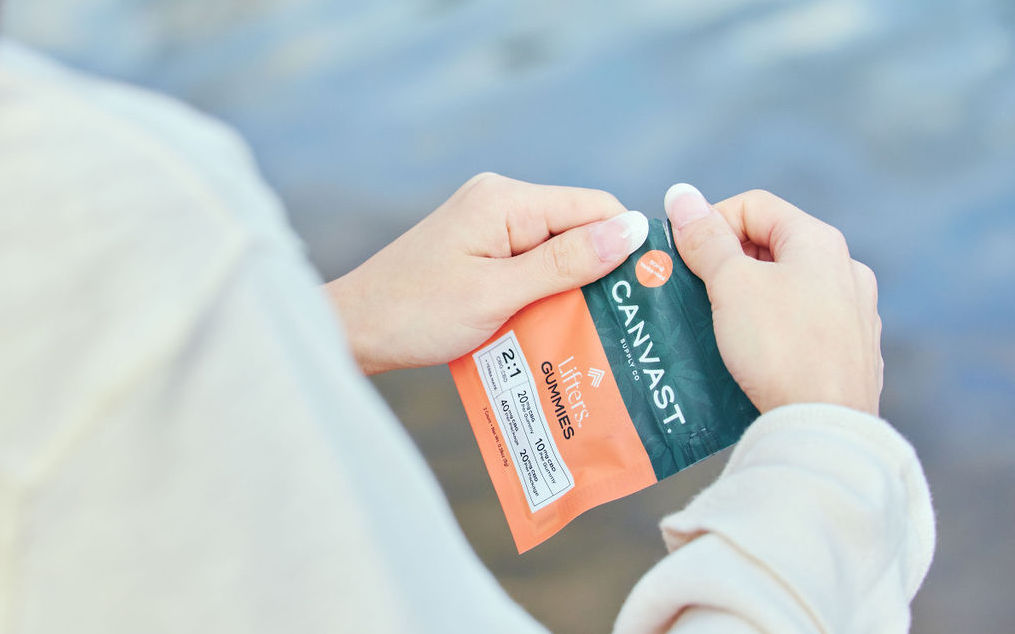
CBD Gummies are not known to have any negative effects on the liver. CBD is known to be protective of the liver. A study published in the Journal of Gastroenterology found that CBD was able to reduce the inflammatory response in the liver and promote cell regeneration.
Another study, this one published in Frontiers in Pharmacology, found that CBD was able to protect against alcohol-induced liver damage.
These studies suggest that CBD may be a helpful treatment for those who suffer from liver disease. However, more research is needed to confirm these results.
The gummy form or candy edible form of these CBD makes it easy to digest and helps with the absorption process. When it comes to taking CBD and how it will affect your body, always remember to start with a low dose and increase gradually as needed. We also recommend that you consult with a medical professional before beginning any new supplement regimen.
CBD effects on the liver
To give you the full story, we need to take a step back and look at how CBD is metabolized in the body.
CBD is metabolized by the liver. This means that it is broken down by enzymes in the liver before it can enter the bloodstream.
The liver is responsible for filtering toxins out of the blood. It also regulates metabolism and breaks down nutrients so that they can be used by the body.
When CBD is metabolized by the liver, it is broken down into smaller molecules. These molecules are then able to pass through the blood-brain barrier and interact with receptors in the brain.
In layman's terms, this means that when you take CBD, it is metabolized by the liver and then passed into the bloodstream where it can interact with the brain.
Below are some of the expected effects of CBD on the liver:
CBD restores liver function
The liver is responsible for filtering toxins from the blood, and when it becomes damaged, it can no longer perform its essential functions. CBD oil helps to protect the liver from damage and improves its ability to filter toxins from the blood. In addition, CBD oil helps to reduce inflammation and promote cell regeneration, both of which are essential for restoring liver function. As a result, CBD oil may be an effective treatment for those with liver damage or disease.
CBD protects against alcohol-induced liver damage
CBD oil is made by extracting CBD from the cannabis plant and then diluting it with a carrier oil such as coconut oil or hemp seed oil. Early research suggests that taking CBD might improve liver function in people with non-alcoholic fatty liver disease (NAFLD). In a small study, participants with NAFLD who took CBD had reduced levels of fat in their liver and improved blood sugar control. CBD may also help reduce inflammation, which is a key contributor to the development of NAFLD. In addition, CBD has been shown to protect against cell damage and improve overall liver function. While more research is needed, these early findings suggest that CBD could be an effective treatment for NAFLD.
CBD improves metabolism
A new study has found that CBD may help to promote weight loss by reducing food consumption and increasing metabolism. CBD is a compound found in cannabis plants, and while it has been shown to have numerous health benefits, its effects on weight have been less well-studied. However, previous research has suggested that CBD may help to reduce appetite and promote metabolism. The new study, which was conducted on rats, found that CBD influences weight by interacting with CB1 and CB2 receptors in the lymphoid tissue and the brain. The rats that were given CBD ate less food and gained less weight than the rats that were not given CBD. The results of this study suggest that CBD may be an effective obesity treatment.
Side effects of CBD
According to a recent report, CBD carries a good safety profile. Many people choose CBD to reduce the risk of liver diseases. It has relatively low side effects if taken at large concentrations, notably the presence of THC and the use of marijuana as an alternative for smoking. Taking high-grade CBD oils daily is unlikely to cause side effects.
According to a recent report, CBD carries a good safety profile. Many people choose CBD to reduce the risk of liver diseases. It has relatively low side effects if taken at large concentrations, notably the presence of THC and the use of marijuana as an alternative for smoking. Taking high-grade CBD oils daily is unlikely to cause side effects.
But to be on the safe side, if you are new to CBD, start with low doses and increase gradually. You should also consult your doctor before starting to take CBD, especially if you are taking any medications.
CBD can interact with some medications, so it is important to check with your doctor before taking it.
Possible side effects of CBD include:
Dry mouth
Dry mouth is a common side effect of CBD, this is because CBD reduces the production of saliva. To combat this, drink plenty of water and chew sugar-free gum or mints to keep your mouth moist.
Drowsiness
CBD may cause drowsiness in some people, especially at high doses. If you experience drowsiness after taking CBD, it is best to stay well-hydrated and avoid driving or operating heavy machinery.
Diarrhea
Diarrhea is another common side effect of CBD, this is because CBD can act as a laxative. If you experience diarrhea after taking CBD, be sure to stay hydrated and drink plenty of fluids.
Interactions with medications
As mentioned above, CBD can interact with some medications. If you are taking any medications, it is best to consult with your doctor before taking CBD.
Possible drug interactions include:
CBD and grapefruit
CBD and grapefruit juice may interact with each other. Grapefruit inhibits the activity of CYP3A4, an enzyme that metabolizes many drugs. CBD also inhibits the activity of this enzyme. As a result, taking CBD and grapefruit together may increase the levels of CBD in your blood. This could increase the effects and side effects of CBD. To avoid this interaction, do not drink grapefruit juice while taking CBD.
CBD and other medications that are metabolized by CYP3A4
As mentioned above, CBD can inhibit the activity of CYP3A4, an enzyme that metabolizes many drugs. This could increase the levels of those medications in your blood. To avoid this interaction, do not take CBD if you are taking any medications that are metabolized by CYP3A4.
CBD and warfarin
CBD may increase the levels of warfarin in your blood. Warfarin is a medication that prevents blood clots. Taking CBD and warfarin together may increase the risk of bleeding. To avoid this interaction, do not take CBD if you are taking warfarin.
CBD and other medications that affect blood clotting
As mentioned above, CBD may increase the levels of warfarin in your blood. Warfarin is a medication that prevents blood clots. Taking CBD and warfarin together may increase the risk of bleeding. To avoid this interaction, do not take CBD if you are taking any medications that affect blood clotting.
CBD and medications for anxiety
CBD may increase the effects of some medications used for anxiety, such as benzodiazepines. Benzodiazepines are a type of medication that is used to treat anxiety and sleep disorders. Taking CBD and benzodiazepines together may increase the risk of drowsiness and sedation. To avoid this interaction, do not take CBD if you are taking any medications for anxiety.
CBD and other sedatives
As mentioned above, CBD may increase the effects of some sedatives, such as benzodiazepines. Taking CBD and benzodiazepines together may increase the risk of drowsiness and sedation. To avoid this interaction, do not take CBD if you are taking any sedatives.
CBD and medications for sleep
CBD may increase the effects of some medications used for sleep, such as benzodiazepines. Taking CBD and benzodiazepines together may increase the risk of drowsiness and sedation. To avoid this interaction, do not take CBD if you are taking any medications for sleep.
Does CBD oil increase liver enzymes?
This is yet another question that we get asked a lot. The answer, however, is a little bit more complicated than simply yes or no. CBD may increase liver enzymes in some people, but it does not do so in all people.
Cannabidiol (CBD) is a non-intoxicating compound of the cannabis plant that has gained popularity in recent years for its potential therapeutic benefits. Though CBD oil is typically well-tolerated, it can cause some side effects, including headaches, dizziness, dry mouth, and changes in appetite. Some people also report an increase in liver enzymes after taking CBD oil.
Liver enzymes are proteins that help to speed up chemical reactions in the liver. They are normally present in small amounts in the blood. However, if the liver is damaged or inflamed, these enzymes can leak into the bloodstream and cause problems.
In most cases, elevated liver enzymes are not a cause for concern and will return to normal levels on their own. However, in rare cases, they may be a sign of more serious liver damage. If you experience an increase in liver enzymes after taking CBD oil, it is important to talk to your doctor to rule out any underlying causes.
It all boils down to this; if you are taking CBD oil and your liver enzymes begin to rise, it is important to contact your doctor to rule out any possible underlying causes. In the vast majority of cases, however, elevated liver enzymes are not a cause for concern and will return to normal levels on their own.
Is CBD affecting your liver? The opinion of experts
The market to use products with cannabinoids — the nonpsychoactive pain-reliever molecule that makes cannabis — has exploded over recent years, but its effectiveness remains fairly unstudied. The FDA is also considering deciding whether to approve the CBD supplement, but it is not based on science. In the aforementioned animal research, the researchers discovered over the past few days the effects of CBD on liver damage can be severe and even deadly in high dosages. In this last portion of the article, we reviewed the studies of experts on its potential effects on humans who enjoy CBD.
What the research says
Researchers from the University of Arkansas evaluated the effects of various dosages of CBD on a group of 8-week-old mice, citing a "paucity of thorough toxicological studies devoted to CBD safety that are crucial for continued commercialization of CBD and CBD-containing products."
The mice tolerated the CBD well, but those given the highest doses – 200 mg of CBD per kilogram of body weight in humans — exhibited strong evidence of liver toxicity, according to the researchers.
This means that CBD might potentially be damaging to the liver in large doses, and more research needs to be done to determine the long-term effects of CBD on the human liver.
That's why it's important to be mindful of the doses you're taking and to start with a low dose if you're new to CBD. If you have any concerns about its effects on your liver, be sure to speak with your doctor before starting to use CBD.
Don't worry!
The above research might be worrisome but it actually shouldn't be. CBD has a wide therapeutic margin, meaning that it can be taken in high doses without causing any serious side effects. One study showed that dosages of up to 1,500 mg per day were well-tolerated by human subjects.
So, if you're concerned about the potential effects of CBD on your liver, don't worry! You would have to take extremely high doses for it to cause any damage.
While experts agree that patients should be aware of what they're getting and the potential hazards, the amount of CBD the animals were exposed to was significantly more than what most people would take.
Even though CBD is widely available, says Dr. Diana Martins-Welch, an attending physician in palliative at Northwell Health in New Hyde Park, New York, "it does not mean it is safe to consume in large amounts, or that it is more beneficial at high dosages."
"Many individuals are aware that taking too much ibuprofen or Tylenol might be harmful. CBD is no exception. Therapeutic CBD doses typically vary from 0.5 mg/kg/day to 20 mg/kg/day, according to Martins-Welch.
So stick to the right dosage!
CBD is a powerful compound with a wide range of therapeutic properties. However, it's important to stick to the right dosage to avoid any potential risks.
Because many CBD products sold over-the-counter are not regulated by the federal government, you may be taking more or less of the chemical than is stated on the label.
The FDA has issued a flurry of warning letters in recent years as a result of CBD products being sold with either erroneous quantities of the compound that didn't fit what was indicated on the box or trace concentrations of THC, cannabis' psychotropic chemical and a Schedule 1 narcotic.
This means you have to be careful about what you're buying!
Although the dosage of CBD you take is important, it's also important to be mindful of the quality of the product you're using.
Wrapping up!
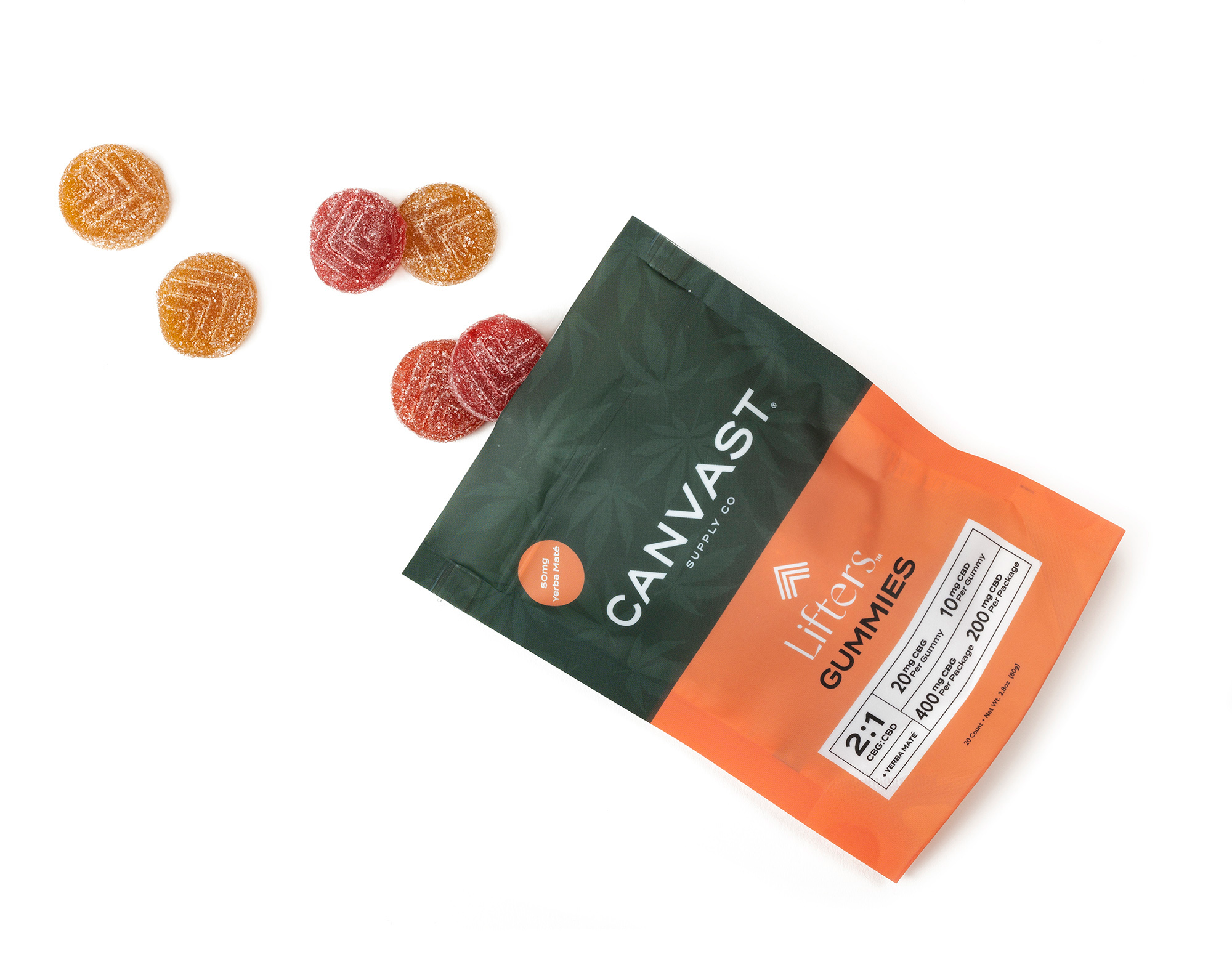
We talked about how CBD gummies and other CBD products can help improve your sleep, mood, and pain levels. As we said, CBD gummies, in their edible nature, are easier to digest and have a more relaxing effect on the body.
It also has many flavors, which can be helpful if you have a sensitive stomach. If you want to try CBD but are worried about its effects on your liver, start with a low dose and increase gradually as needed.
And finally, be sure to buy your CBD products from a reputable source to ensure that you're getting a quality product.
Most importantly, don't forget that you should always speak with your doctor before starting to use CBD, especially if you have any concerns about its potential effects on your liver.
We hope you found this article helpful! Thanks for reading! Visit Canvast online or in-store to shop our premium cannabis edibles, like our Drifter CBN + L-Theanine Gummies or our Shifter Delta-9 + Electrolytes!




